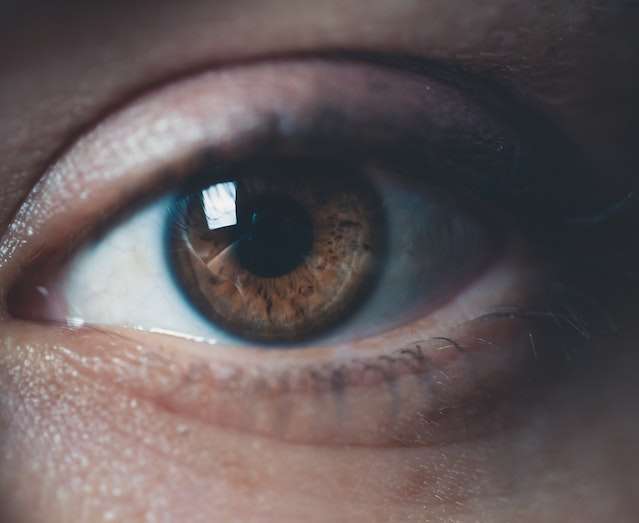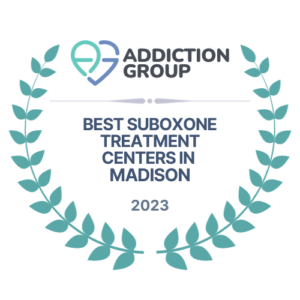

Although drinking alcohol is a common way to unwind and meet new people, it can also have effects that go beyond its appeal. For many people, giving up alcohol is a step in the right direction toward a healthier lifestyle. But this journey almost never goes smoothly.
A complex combination of physical and psychological reactions develops as the body becomes used to the lack of alcohol. When alcohol consumption is stopped, a series of alcohol withdrawal symptoms that might range from minor discomfort to serious anguish can appear. These difficulties highlight the need for understanding and support during this crucial stage and serve as a reminder of the substantial effects alcohol has on our physiology and psychology.
What is Alcohol Withdrawal?
When someone abruptly stops drinking alcohol or significantly reduces their intake, especially after heavy and prolonged use, they experience a range of physical and psychological symptoms known as alcohol withdrawal. This occurs because the brain and body have become accustomed to the presence of alcohol, and its sudden absence disrupts the delicate balance within the system.
Why Does Alcohol Withdrawal Occur?
Alcohol, a central nervous system depressant, impacts the brain’s neurotransmitter balance. Regular alcohol consumption causes the brain to alter its neurotransmitter levels in order to counteract the sedative effects of alcohol. Over time, this leads to the development of tolerance. Requiring larger amounts of alcohol to achieve the same effects.
The abrupt cessation of alcohol consumption disrupts the neurotransmitter balance in the brain. Alcohol causes a precipitous decline in GABA (gamma-aminobutyric acid) levels, resulting in heightened excitability in the nervous system. Rebound hyperactivity can cause a variety of symptoms, including anxiety, restlessness, and, in severe cases, seizures.
Alcohol Withdrawal Timeline
Alcohol withdrawal does not occur all at once; rather, it occurs in phases, each of which has its own set of symptoms and difficulties.
The onset of alcohol withdrawal symptoms often occurs within a few hours following the last use of alcohol, reaching their peak within a period of 24 to 48 hours after cessation. However, it is important to note that these symptoms may last in certain instances.
6–12 hours after the last drink:
The body starts to recalibrate itself within the first few hours after the last drink. The following symptoms may emerge:
- Anxiety and restlessness
- Irritability
- Tremor
- Sweating
- Insomnia or disturbed sleep
- Nausea and vomiting
The abrupt absence of alcohol disrupts the equilibrium of neurotransmitters in the brain at this point. The nervous system reacts, leading to the early signs of withdrawal.
12–24hours:
>Many people going through detox report that their symptoms worsen between 12 and 24 hours after their last drink. It is possible that these symptoms will remain mild or that they will become more severe. For example:
- Depression
- Mood swings
- Night sweats
- Nightmares
- Headaches or migraines
- “Brain fog” (not thinking clearly)
- Insomnia or difficulty sleeping
- Vomiting
24–72hours:
The symptoms of withdrawal tend to reach their peak within the first few days. Individuals may experience
- Intensified anxiety and depression
- Increased heart rate
- High blood pressure
- Profound cravings for alcohol
- Heightened sensitivity to light, sound and touch
- Confusion and difficulty concentrating
The symptoms are a reflection of the brain’s attempts to regain equilibrium without alcohol. It’s during this phase that the risk of severe symptoms, like seizures or delirium tremens (DTs), is highest for those with a history of heavy and prolonged alcohol abuse.
3–7 days:
The severity of withdrawal symptoms begins to decrease as the body adjusts to the absence of alcohol. However, some discomfort may persist, such as:
- Lingering anxiety and depression
- Fatigue and decreased energy
- Continued cravings
- Gastrointestinal disturbances
- Difficulty sleeping
This phase signifies the body’s gradual adjustment to functioning without the numbing effects of alcohol. While the worst may be over, it’s crucial to remain vigilant and seek medical assistance if symptoms worsen.
Post-Acute Withdrawal Syndrome (PAWS) Symptoms (last for weeks or months):
For some people, withdrawal symptoms may linger for a very long time after the acute phase. Long-lasting symptoms of this condition, also known as Post-Acute Withdrawal Syndrome (PAWS), include:
- Mood swings
- Memory and cognitive issues
- Insomnia
- Lack of focus
- Emotional sensitivity
- Cravings and emotional triggers
PAWS results from the brain’s prolonged process of repairing and readjusting neurotransmitter levels. Although these symptoms can be aggravating, they gradually disappear over time.


Get the help you deserve today. Start your journey to recovery by contacting us!
Factors Influencing the Alcohol Withdrawal Duration
Aside from the amount of alcohol a person typically consumes, experts do not currently know if any other factors influence the duration of alcohol withdrawal syndrome. More research is required to fully comprehend this condition and how various variables may influence the onset and severity of symptoms.
Frequency and Amount of Alcohol Consumption
- The amount of alcohol consumed has a big impact on how long withdrawal lasts.
- People who have consumed alcohol heavily and over an extended period of time are more likely to go through a longer and more difficult withdrawal process.
- High-volume, frequent drinking results in more profound neuroadaptations in the brain, making it more difficult for the body to adjust to life without alcohol.
Individual’s Overall Health and Genetics
- How a person’s body reacts to withdrawal depends on their physical condition and genetic makeup.
- Those who are in good health may recover more quickly, whereas those who have underlying medical conditions may go through a more drawn-out withdrawal.
- Genetics can have an impact on the chemistry of the brain and its capacity to restore equilibrium.
Co-Occurring Medical and Mental Health Conditions
- Co-occurring medical conditions, such as liver disease, can make withdrawal more difficult and possibly last longer.
- Mental health issues like anxiety or depression can make withdrawal symptoms worse and make the process take longer.
- The timeline becomes more complicated due to how alcohol, withdrawal, and pre-existing conditions interact.
Duration of Alcohol Use
- The neurological adaptations become more profound the longer a person drinks heavily, which could lengthen the withdrawal process.
- After years of alcoholism, patterns may become more ingrained and difficult to change.
Severity of Dependence
- Individuals who are more dependent on alcohol may experience more intense and prolonged withdrawal symptoms.
- Severe dependence can result in intensified physical and psychological symptoms, necessitating additional time for the body and brain to normalize.
Withdrawal Management and Support
- Seeking professional alcohol withdrawal assistance and medical support can have a significant effect on the duration of withdrawal.
- Medical interventions, such as detox programs, can aid in managing alcohol withdrawal symptoms and possibly shorten the overall withdrawal process.
Medical Supervision for Alcohol Withdrawal


Seeking professional medical help when beginning the path of alcohol withdrawal is not just a choice; it is a necessary step towards ensuring safety, managing alcohol withdrawal symptoms, and paving the way for a more straightforward alcohol dependence recovery journey. The decision to involve medical professionals can have a significant impact on the experience and result.
People who have a history of heavy or prolonged alcohol use may experience unpredictable alcohol withdrawal. Due to their training, medical professionals can identify and treat severe symptoms, lowering the risk of complications like seizures or delirium tremens (DTs).
Healthcare professionals evaluate each person’s particular circumstances and customize treatment to meet their needs. This individualized strategy addresses both physiological and psychological symptoms, encouraging a more comfortable and successful alcohol withdrawal process.
Medical Detox and Supervision
Withdrawing from alcohol under the guidance of medical professionals is known as medical detoxification, or medical detox. It happens in a regulated setting, frequently in a hospital or specialized detox facility. This approach makes sure that any potential issues are handled quickly and successfully.
Professionals may prescribe medications during medical detox to lessen alcohol withdrawal symptoms. For instance, benzodiazepines can be used to treat anxiety and prevent seizures, and anti-nausea drugs can help manage gastrointestinal distress. These interventions not only enhance comfort but also safety.
Medical detox supervision enables healthcare providers to closely monitor vital signs, assess symptoms, and adjust treatment as needed. Continuous monitoring ensures that any emerging issues are dealt with immediately, reducing the chance of complications.
Often, medical detox is an essential first step on the road to recovery. Once the acute phase of withdrawal is under control, patients can move on to other treatment options, such as inpatient or outpatient rehab programs, where they can receive all-encompassing support for the underlying causes of alcohol use.
Choosing the Right Approach
The decision to undergo medical detox depends on a number of factors, such as the severity of alcohol abuse, the presence of co-occurring disorders, and individual preferences. A consultation with a healthcare professional can shed light on the best course of action.
Final Thoughts: How Long Does Alcohol Withdrawal Last?
Alcohol withdrawal represents a courageous decision to reclaim control of one’s life and health. It’s a journey that encompasses both physical recalibration and emotional rediscovery.
The length of time it takes to go through alcohol withdrawal varies greatly from person to person. It varies greatly from one person to the next and depends on a wide range of circumstances. Gaining an understanding of these factors is essential for accurately estimating the length of time required for withdrawal and developing an individualized strategy for overcoming the difficulties associated with this process.
It is imperative to seek medical attention from trained professionals. Medical detox is an important step in managing severe symptoms, preventing complications, and ensuring safety.
Recovery from alcohol withdrawal is a gradual process that includes physical healing, emotional growth, and the establishment of healthier habits. Both difficulties and successes are part of the journey.
Equipping yourself with self-care strategies and surrounding yourself with a supportive network can make a significant difference. Healthy coping mechanisms, professional counseling, and participation in activities that you enjoy are all important tools for fostering your alcohol dependence recovery.
Do you want to know more? Read more relevant articles: Crucial Indicators: Recognizing the Signs of Alcohol Addiction
If you are concerned about your alcohol use and would like to explore whether you might have AUD, National Addiction Specialists is here to help and support you! Book your appointment today!
Sources
- Alcohol withdrawal timeline: Symptoms and more. (n.d.). Alcohol Withdrawal Timeline: Symptoms and More. https://www.medicalnewstoday.com/articles/alcohol-withdrawal-timeline-symptoms-and-more
- Newman, R. K., Stobart Gallagher, M. A., & Gomez, A. E. (2023, July 21). Alcohol Withdrawal – StatPearls – NCBI Bookshelf. Alcohol Withdrawal – StatPearls – NCBI Bookshelf. https://www.ncbi.nlm.nih.gov/books/NBK441882/
- Valenzuela, C. F. (n.d.). Alcohol and Neurotransmitter Interactions. PubMed Central (PMC). https://www.ncbi.nlm.nih.gov/pmc/articles/PMC6826822/
- Alcohol Withdrawal: What Happens When You Stop Drinking? (2021, November 26). WebMD. https://www.webmd.com/mental-health/addiction/alcohol-withdrawal-symptoms-treatments
- Bayard, M., Mcintyre, J., Hill, K. R., & Woodside, J. J. (n.d.). Alcohol Withdrawal Syndrome. Alcohol Withdrawal Syndrome | AAFP. https://www.aafp.org/pubs/afp/issues/2004/0315/p1443.html
- L. MUNCIE, J. H., YASINIAN, Y., & OGE’, L. (n.d.). Outpatient Management of Alcohol Withdrawal Syndrome. Outpatient Management of Alcohol Withdrawal Syndrome | AAFP. https://www.aafp.org/pubs/afp/issues/2013/1101/p589.html
- https://www.goodrx.com/conditions/alcohol-use-disorder/alcohol-withdrawal
- https://www.ccjm.org/content/ccjom/83/1/67.full.pdf
- https://store.samhsa.gov/sites/default/files/d7/priv/sma15-4131.pdf













